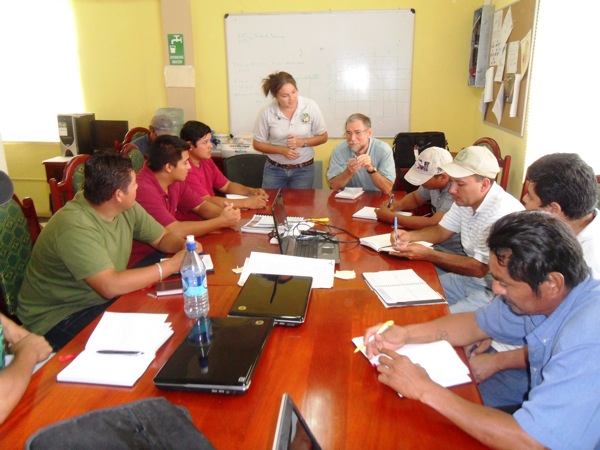
Over the last decade, Fairtrade sales increased dramatically, reaching €2.89bn globally by the end of 2008. In line with this growth there is increasing demand to demonstrate the difference that engagement with Fairtrade is having for participating producers and workers, their families and their communities.
To this end, the Fairtrade Foundation commissioned NRI to conduct a series of desk and field studies over the last three years. These started in 2008 with the meta-analysis of over 80 academic and development agency reports about Fairtrade impact (organisational, social, economic and environmental) by Valerie Nelson and Barry Pound.
Further to this, a series of longitudinal field studies by Barry Pound and local partners was initiated in late 2008 with smallholder Fairtrade sugar in Belize, continuing with studies of Fairtrade tea, sugar and groundnuts in Malawi in 2009/10. These field studies are to be repeated at two and four years to track the changes due to Fairtrade and other endogenous and exogenous factors.
 Barry has just returned from the second impact monitoring in Belize, where, during the last two years, the producer organisation (the Belize Sugar Cane Farmers Association) was de-certified following inspection by the Fairtrade Labelling Organisation (the independent body that verifies if Fairtrade certified organisations are meeting required standards), and only recently re-certified thanks to major changes to its administration, finance and environmental operations.
Barry has just returned from the second impact monitoring in Belize, where, during the last two years, the producer organisation (the Belize Sugar Cane Farmers Association) was de-certified following inspection by the Fairtrade Labelling Organisation (the independent body that verifies if Fairtrade certified organisations are meeting required standards), and only recently re-certified thanks to major changes to its administration, finance and environmental operations.
Belize sugar is all sold as Fairtrade sugar through Tate and Lyle. This means that the Belize Sugar Cane Farmers Association receive US$60 per tonne of sugar as a Fairtrade Premium over and above the normal price. This amounts to about US$6million per year, which benefits over 6,000 small farmers, their families and their communities. The Premium fund is used to improve the quality and quantity of sugar cane produced and for community development projects that benefit men, women and children.
The results of the desk and field studies indicate that although not perfect, Fairtrade has a range of significant benefits for smallholder farmers and estate workers including: improved access to basic services, capacity building and empowerment of smallholder and worker organisations, improved trading relationships with commodity buyers, and improved access to international markets.

